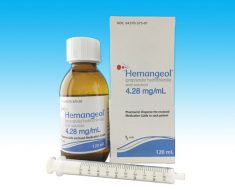Ghee, which is rich in several vitamins that are essential for the immune system, should be included in at least one of your meals each day, suggests nutritionist Rujuta Diwekar

The opinion has always been divided when it comes to clarified butter or ghee. While some of us devour on ghee, many others tend avoid it fearing weight gain. However, the trick lies in having a quantity that is beneficial for one’s health while also enhancing the taste of food without overpowering it.
Here’s celebrity nutritionist Rujuta Diwekar explaining how much ghee should one have in their meals.
“Based on what is it that we are eating, we need to add proportional amount of ghee,” she said in an Instagram video.
Describing the proportion, she said, “For a millet like nachni or ragi, you will need to add a little more ghee compared to what you would add on dal and rice,” she said.
A post shared by Rujuta Diwekar (@rujuta.diwekar)
So, how much is too much?
Enough ghee to enhance the flavour but not so much that it will mask the flavour of food, she added.
Previously, too, Diwekar has spoken about ghee consumption.
“It depends on what you are eating, and this info is part of our collective food wisdom. Foods like dal-rice, khichdi, roti-sabzi will require lesser ghee compared to puran poli, dal baati, bajra roti, etc. Ask your grandmother if you have any confusion,” she noted.
https://www.instagram.com/p/Bd1qo2RloMV/
A post shared by Rujuta Diwekar (@rujuta.diwekar)
Ghee, which is rich in several vitamins that are essential for the immune system, should be included in at least one of your meals each day.
“Ensure that you are getting around 3-6 tsp of ghee per day/per person. The key is that ghee should enhance the flavour of food and not mask it,” she mentioned while stating that a teaspoon of ghee for breakfast, lunch and dinner is good.
For more lifestyle news, follow us: Twitter: lifestyle_ie | Facebook: IE Lifestyle | Instagram: ie_lifestyle
📣 The above article is for information purposes only and is not intended to be a substitute for professional medical advice. Always seek the guidance of your doctor or other qualified health professional for any questions you may have regarding your health or a medical condition.
Source: Read Full Article





